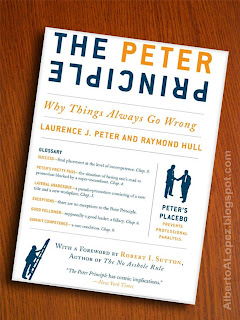From the time when he announced he would miss Jackson Hall this year to the obvious resignation that pours over the cameras as he talks about the state of the economy, it is clear that Mr. Ben Bernanke is exhausted. Eight days ago,
his boss fired him in front of a national TV audience. Rather than improving, important aspects of the economy like real
cost of capital for small businesses and the system's
velocity of money worsened even after the
recession had ended in 2009.
Let's wear Bernanke's shoes for a moment. It must be truly devastating to see that everything that you studied and learned from the
Great Depression, everything that you prepared to prevent another one from happening, can't help you once you find yourself in the middle of it. Surely, he devised the economic maneuvers that would spark the comeback. He must have rehearsed each and every step needed for solving the biggest of economic challenges. More importantly, he must have trusted that historical evidence would motivate those in power not to repeat the same mistakes. But it was not to be.
In the words of
Mark Twain, "
history does not repeat itself, but it does rhyme". No matter what the
US Federal Reserve may do, feelings of
mercantilism and resentment towards those behind the
financial markets resurfaced among citizens; just as they did when the nation faced the same foe close to 80 years ago. These tendencies have created once again an environment where people elected a politician who resonates with such poor market ideas.
To think that things would be different this time is like hoping that the next generation of teenagers will not drive mom's
SUV over the speed limit just because there is plenty of evidence that it is neither necessary nor good. Teenagers learn by crashing. Perhaps we prefer learning through pain as well.
Whether you like Bernanke’s actions or not, he has been the only game in town; the only one really acting to solve the malaise. Apparently, he was also the only one who combined an understanding of the problem with the integrity needed to execute. Others knew what to do but remained quiet. Most had no clue about economics but yelled their opinion all the same.
Bernanke understood that markets are
emotional and tried to deliver positive messages. Even when he knew that the window of opportunity would be narrow, he delivered enough
liquidity to make markets forget the bad times for at least a moment. He knew that a
liquidity trap would prove his approach right despite the many warnings of
inflation by armies of detractors. He also had the
backbone to stand up for what he believed despite seeing that both political sides were taking shots at him any time they had a chance. From my perspective, Mr. Bernanke is an honorable man who has served us with everything he could deliver.
But he could not do it alone. How else could Bernanke build valuable market confidence when the leader of the nation aimed his artillery to those holding the
purse strings? Mr. Obama ignored the fact that fear mongering and business witch-hunts do nothing for investment confidence. The President has completely ignored dozens of lessons from history that have proven his brand of socialism ineffective. Obama over estimated his
Jedi power over markets (if there is such a thing). But perhaps the most troublesome, our leader ignored the fact that Americans are creative enough when motivated to deliver solutions to any problem; whether economic or environmental. This was once a nation where corruption and filth were rampant a few decades ago. Yet, its citizens created models that the rest of the world now tries to emulate. Eat at a
McDonald's restaurant in
China to see what fighting a mob for a piece of burger feels like. In an instant you will be thankful of the order that we witness everywhere in this nation; order which wasn't always there.
For many poor leaders, fear and insecurities among subjects are essential tools for power preservation. Instead of motivating the nation,
Obama has talked down to us as if we were all idiot children who must be made to comply. For a picture, think of the many
psychologically abusive parents out there who really love their children and just transpose the characters. You are the abused child.
Notice that I say nothing about Congress. Decisions by committee don't work in business and surely fail in government just as well. Besides, I think that a leader is responsible for leading; so no excuses Mr. President. It is your job, even if no one can suggest a better way.
The President could have inspired hard work. Instead, he exploited feelings of entitlement among the masses. Instead of pushing for cutting unproductive spending in the same way that any CEO would do, he bickered over forced cuts from the
Sequester. Complaining is the tool of the weak, I feel.
But rather than helping Bernanke's efforts, Obama took advantage of the resulting low
National Debt Interest costs; thus ignoring the massive potential future risk to be faced by tax payers. Paying five to ten times more to rescue a job than what the employee gets in income is wasteful no matter how cheap money is right now.
Not long ago, we paid the same in
interests for a much lower
foreign debt. This is because Ben's liquidity push has made government borrowing costs lower today than any recent time. But interests will not remain low indefinitely and are thus headwind-risk for the Fed's actions. In other words, instead of lubricating, Obama created drag.
Washington is simply full of people focused on everything but getting the job done; from the President to the lobbyists, we are not being served well. Thankfully there was a
Lone Ranger in the crowd.
I did not agree with everything Bernanke did. I nonetheless admire his stature and integrity. As the brilliant and confident person he is, I am sure that he doesn't need everyone to agree with him and that he values the insight resulting from intellectual debate.
With Bernanke leaving, no doubt we will get another bright person to take the controls at the Fed. What I am not sure we will get is another giant with the same degree of integrity and conviction. The next one may be a "yes" person who is willing to bend rules so long as the boss makes the request. Backbone is what I know we will miss most.
Thank you Mr. Bernanke. You are a great man.






















